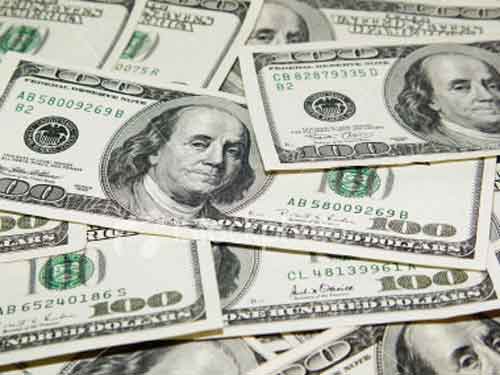
|
World economic freedom has reached record levels, according to the 2014 Index of Economic Freedom, released Tuesday by the Heritage Foundation and The Wall Street Journal. But after seven straight years of decline, the U.S. has dropped out of the top 10 most economically free countries. For 20 years, the index has measured a nation's commitment to free enterprise on a scale of 0 to 100 by evaluating 10 categories, including fiscal soundness, government size and property rights. These commitments have powerful effects: Countries achieving higher levels of economic freedom consistently and measurably outperform others in economic growth, long-term prosperity and social progress. Botswana, for example, has made gains through low tax rates and political stability. Those losing freedom, on the other hand, risk economic stagnation, high unemployment and deteriorating social conditions. For instance, heavy-handed government intervention in Brazil's economy continues to limit mobility and fuel a sense of injustice. It's not hard to see why the U.S. is losing ground. Even marginal tax rates exceeding 43% cannot finance runaway government spending, which has caused the national debt to skyrocket. The Obama administration continues to shackle entire sectors of the economy with regulation, including health care, finance and energy. The intervention impedes both personal freedom and national prosperity. But as the U.S. economy languishes, many countries are leaping ahead, thanks to policies that enhance economic freedom—the same ones that made the U.S. economy the most powerful in the world. Governments in 114 countries have taken steps in the past year to increase the economic freedom of their citizens. Forty-three countries, from every part of the world, have now reached their highest economic freedom ranking in the index's history. Hong Kong continues to dominate the list, followed by Singapore, Australia, Switzerland, New Zealand and Canada. These are the only countries to earn the index's "economically free" designation. Mauritius earned top honors among African countries and Chile excelled in Latin America. Despite the turmoil in the Middle East, several Gulf states, led by Bahrain, earned designation as "mostly free." A realignment is under way in Europe, according to the index's findings. Eighteen European nations, including Germany, Sweden, Georgia and Poland, have reached new highs in economic freedom. By contrast, five others—Greece, Italy, France, Cyprus and the United Kingdom—registered scores lower than they received when the index started two decades ago. The most improved players are in Eastern Europe, including Estonia, Lithuania and the Czech Republic. These countries have gained the most economic freedom over the past two decades. And it's no surprise: Those who have lived under communism have no trouble recognizing the benefits of a free-market system. But countries that have experimented with milder forms of socialism, such as Sweden, Denmark and Canada, also have made impressive moves toward greater economic freedom, with gains near 10 points or higher on the index scale. Sweden, for instance, is now ranked 20th out of 178 countries, up from 34th out of 140 countries in 1996. The U.S. and the U.K, historically champions of free enterprise, have suffered the most pronounced declines. Both countries now fall in the "mostly free" category. Some of the worst performers are in Latin America, particularly Venezuela, Argentina, Ecuador and Bolivia. All are governed by crony-populist regimes pushing policies that have made property rights less secure, spending unsustainable and inflation evermore threatening. Despite financial crises and recessions, the global economy has expanded by nearly 70% in 20 years, to $54 trillion in 2012 from $32 trillion in 1993. Hundreds of millions of people have left grinding poverty behind as their economies have become freer. But it is an appalling, avoidable human tragedy how many of the world's peoples remain unfree—and poor. The record of increasing economic freedom elsewhere makes it inexcusable that a country like the U.S. continues to pursue policies antithetical to its own growth, while wielding its influence to encourage other countries to chart the same disastrous course. The 2014 Index of Economic Freedom documents a world-wide race to enhance economic opportunity through greater freedom—and this year's index demonstrates that the U.S. needs a drastic change in direction.
|
綜合外國媒體1月15日報道,美國傳統基金會和《華爾街日報》14日公布的“2014年全球經濟自由度指數”報告顯示,全球經濟自由度達到歷史最高水平。其中,香港連續20年名列第一,美國跌出前十,中國大陸排名第137位。 ***香港“全球最自由” 自1995年設立以來,該指數依據財政穩健度、政府規模和財產權利等10個類別的指標,評價各個國家和地區經濟自由度的得分。美國傳統基金會認為,具有較高經濟自由度的國家在經濟增長、國家繁榮和社會進步方面表現更佳。與之相反,欠缺經濟自由的國家更易陷入經濟蕭條、失業率高企和社會環境惡化的險境。 今年,香港連續20年蟬聯全球最自由經濟體,其得分為90.1,較去年上升0.8分,為歷年來第二高。緊隨其后的是新加坡、澳大利亞、瑞士、新西蘭和加拿大。報告中,有且僅有這6個國家和地區被劃入最高等別“經濟自由”。 “香港以貿易自由、投資自由和金融自由實現了高度的市場開放,由于監管透明度的提高和有競爭力的稅收制度,經濟自由得到進一步強化。”報告同時指出,近年來新加坡經濟愈來愈開放,其與香港的差距有進一步收窄的跡象。 此外,毛里求斯和智利分列非洲國家和拉丁美洲國家的第一位。在局勢動蕩的中東地區,以巴林為首的多個海灣國家被評為“比較自由”。 ***美國排名連降7年 在“2014年經濟自由度指數”報告中,美國排名第12位,相比去年下降兩名,并且是第七年連續下降。 “不難看出美國為何連連敗退。”美國傳統基金會國際貿易和經濟中心負責人特里?米勒指出,即使美國的邊際稅率超過43%,也無法平衡失控的政府支出,這導致國家債務飆升。與此同時,奧巴馬政府繼續加強對整個經濟領域的監管,包括醫療保健、金融和能源,“這些干預妨礙了個人自由和國家繁榮”。 與美國類似,作為曾經的贏家,近年來英國的經濟自由度顯著下降。如今,美英兩國均降至“比較自由”等別。 ***全球總體表現亮眼 盡管美英等國的經濟自由日益惡化,但全球總體表現亮眼。今年,各個國家和地區的平均得分為60.3,是全球經濟自由度指數發布20年來的最高水平。 其中,愛沙尼亞、立陶宛和捷克共和國等東歐國家進步最大,其經濟自由水平達到近20年來的最高值。“這并不令人感到意外,這些國家意識到了自由市場體系帶來的好處。”報告指出。 “其他國家和地區的經濟自由水平不斷提升,但美國卻繼續推進與經濟增長背道而馳的政策,并利用其影響力鼓勵他國步其后塵,這是不可原諒的。”米勒說,“‘2014年全球經濟自由度指數’報告表明,一場通過提升經濟自由度來追逐經濟增長機遇的競賽正在全球范圍內展開,由此,美國亟需轉變前進方向。” 相關閱讀 (歐葉 編輯:信蓮)
|
|
|
